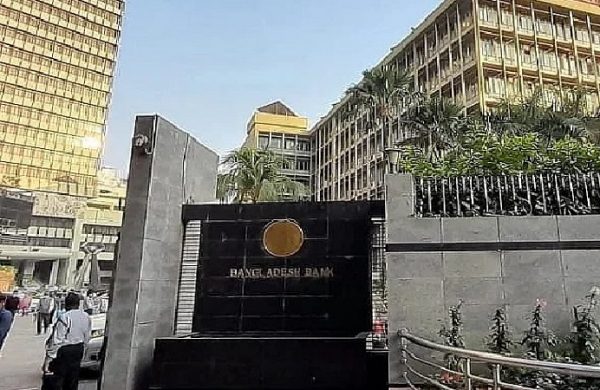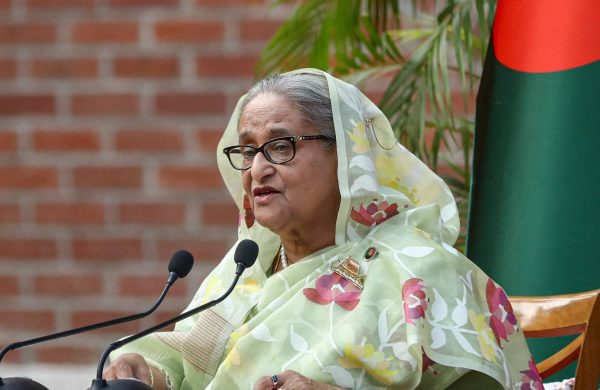Confidence crisis hits banking sector: Customers withdrawing deposits, banks in liquidity crunch
- Update Time : Wednesday, May 8, 2024

Staff Correspondent:
People are not keeping money in banks even at high-interest rates. The trend of withdrawing deposits has reached an alarming rate. The crisis of confidence is intensifying. As a result, the banking sector is facing a liquidity crunch. Most of the banks are borrowing. On the other hand, investment is hampered due to less supply of money. Many banks may face capital crisis in the long run. A review of the data shows that most of the banks are failing to collect enough deposits despite increasing the interest rate by 4 percent. Especially the state of public sector banks is critical. Many people related to the banking sector believe that the situation is getting worse due to the unrealistic policies and unplanned actions of the central bank. They say that despite reports of irregularities and fraud in the banking sector in the last few years, the Central Bank has not taken any visible action. On the contrary, fraud circles have been given impunity with various policy aids. As a result, people have withdrawn deposits from banks several times.
The central bank itself has identified some
banks as weak through the recent bank merger process. On condition of anonymity a managing director of a private bank, said, “If the regulatory agency says that the bank is weak; then why the customer will keep money in that bank? And if all the customers start withdrawing money together then it is not possible for anyone to handle it.”
On the other hand, by hiding information, wrong information or denying their own reports, the central bank officials have created a terrible situation. It is known that mistrust is being created as various information published by the central bank later proved to be wrong. According to the published data, the defaulted loan of the private Padma Bank is 46 percent; However, in the context of the bank’s integration with EXIM bank, it is known that more than 70 percent of the loans are defaulted.
That’s mean, the information published by the central bank is not the true picture of the banks. On the other hand, the total amount of defaulted loans in the banking sector is Tk 1 lakh 45 thousand crores. But the International Monetary Fund (IMF) says this number is 4.5 lakh crore. Besides, many banks are being allowed to show profits under special arrangements in the name of deferral facilities despite being in a capital deficit.
Recently, the central bank marked the banks in the country in red and yellow. After this information was published in the media, the spokesperson of the regulatory agency denied their own report. In this, the lack of confidence in the banking sector has reached its peak.
Stakeholders believe that if this list is incorrect; so why did the good banks are suffering? And if the list is correct; so why did the spokesperson deny it? No definite explanation has yet been found. A senior official of the state-owned Rupali Bank said that at least 5,000 crores of deposits have been withdrawn after the news of the bank’s redlisting came out. The official’s question is, on what grounds were some banks redlisted, which the central bank is now denying?
Bangladesh Bank’s spokesperson said that Basic Bank is not government-owned during the merger talks with the private City Bank last month. In this, at least 2,000 crores of deposits have been withdrawn from Basic Bank, said Anisur Rahman, the managing director of the bank. In a media statement protesting the statement of the central bank spokesperson, the bank claimed that ‘Basic Bank is a 100% state-owned bank’ – there is no room for doubt. Besides, the board of the bank has taken a policy decision not to merge with private banks. As a result, the situation has improved somewhat.
The central bank has failed to achieve its goals through contractionary monetary policy with a focus on inflation. As part of this process, the policy interest rate has been increased. Interest rates on deposits and investments have also increased. As a result of the increase in interest, bank deposits are expected to increase. On the other hand, due to the high interest on loans, the investment will decrease and sufficient liquidity will accumulate in the hands of the bank, so it will go to the central bank at a higher interest. As a result, the flow of money in the market will decrease overall. Through this, it will be possible to control inflation. But the real picture is different. Due to the shortage of money in the banks, the central bank is
providing liquidity assistance of an average of 20,000 crore taka per day. Moreover, bank deposits have not increased and inflation has not decreased.
By reviewing the data, it can be seen that Bangladesh Bank raised the limit of 9 percent on bank loan interest at the beginning of the current fiscal year to control inflation and solve the crisis in the country’s financial sector. To increase the interest rate of loans, all banks have also increased the interest rate on deposits. As a result, the money in people’s hands started going to the bank. But last December the process of bank merger started. As a first step, the central bank announced the Prompt Corrective Action (PCA) framework. In this method, weak banks are supposed to be identified in March next year. But suddenly some banks were announced to merge. This creates panic among customers. Especially the customers of government banks started withdrawing their deposits from the bank in panic.
Bangladesh Bank’s former governor Dr. Salehuddin Ahmed said, due to a lack of trust caused by long-term irregularities, money has gone out of the bank, and it is not coming back. Provision has to be kept against this due to an increase in defaulted loans. A circle is smuggling money abroad. Banks are also not able to manage liquidity well.
According to BB data, at the beginning of the
current fiscal year, the amount of liquidity (cash) in government banks was 1 lakh 33 thousand 930 crores. But at the end of February, the cash of those banks decreased to 1 lakh 26 thousand 737 crores. That is, in the 8 months of the financial year, the cash from government banks has decreased by 7,193 crores. The same case for the specialized banks. At the beginning of the financial year, cash in the hands of specialized banks was Tk 2,540 crore. But at the end of February, it reduced to 2,299 crores. That means the liquidity of specialized banks has decreased by Tk 239 crore.
According to the central bank report, the total liquidity in the entire banking sector was Tk 4 lakh 21 thousand 234 crore in July. In February it increased to Tk 4 lakh 34 thousand 354 crore. So, the liquidity in the overall banking sector has increased slightly, but the flow of cash in government banks has decreased. Related sources say that deposits from government banks further decreased in March and April.
Another former governor of Bangladesh Bank Dr Farasuddin Ahmed said, action must be taken to restore the trust of the customers. The perception that money will not be available when the bank is closed must be changed. Banks are closing down in different countries of the world but there is no problem in getting back the money of customers. Interest may not be earned. But there is no problem in getting the capital. For this reason, deposit insurance needs to be increased from one lakh taka to one crore taka. Then the depositors will get confidence. Bank deposits should be increased at any cost. For this, all the obstacles of 3 to 6 months term deposits should be removed.
However, bankers say, the calculation shows that the total liquidity growth in the last eight months is disappointing. Because even if the deposit interest is calculated, there should be more money than this. Now the investment situation is not so good. However, in the context of rising public debt, it may have levelled off, but not overall.
Essentially, deposit withdrawal rates have increased due to a lack of confidence after the bank consolidation process began. According to the information received, several institutional depositors have applied to withdraw money from the bank recently. In the meantime, Basic Bank has lost more than 2,500 crores of deposits. Customers have withdrawn Tk 150 crore from BDBL as well. The situation is almost the same for other banks in the list of mergers. They are also afraid of losing their deposits. Customers of good banks are panicking and withdrawing money due to the news of merger with weak banks.



















